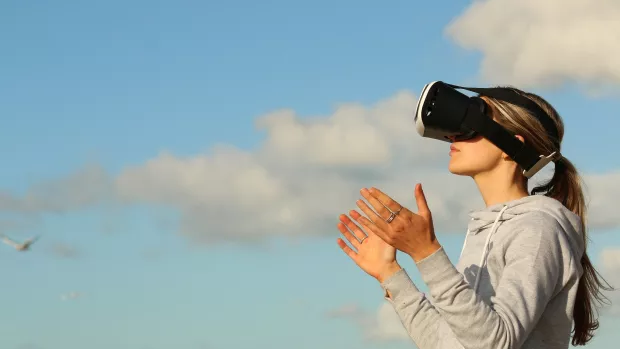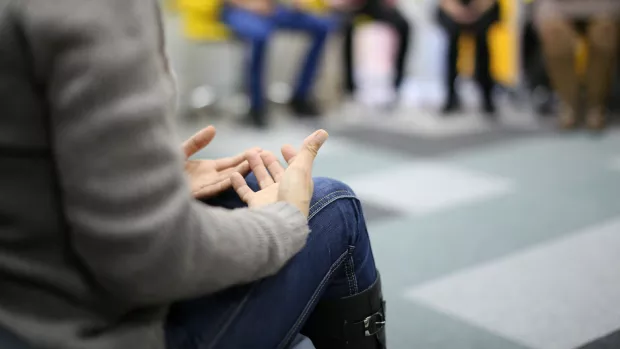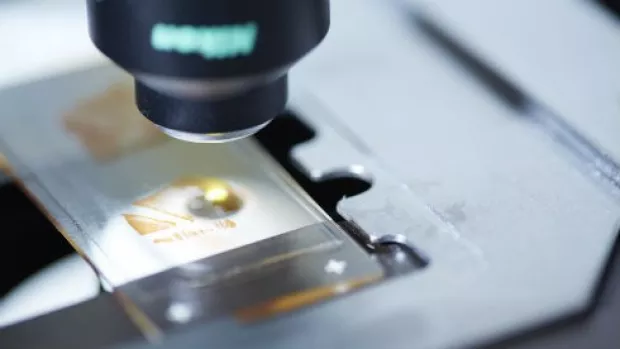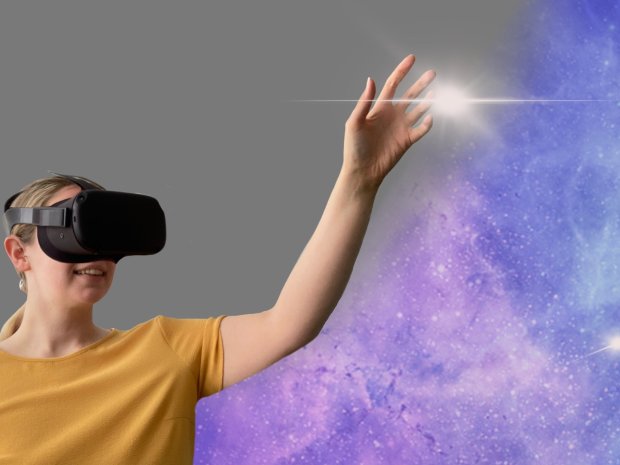
Reaching for the stars - how virtual reality games can make exercising more fun
For International Day of Women and Girls in Science, we’re highlighting one of our brilliant scientists in MS research, PhD student Amy Webster. She told us about her research into how virtual reality games could help people with MS.
Amy started her journey in research when she first studied the human body and brain. Her spark for learning more about conditions of the brain led her to start her PhD in MS research in Glasgow. Here she researches how virtual reality games can help people with MS rehabilitate their upper limbs.
Amy says “I was originally going to study virtual reality games for people who had a stroke. But I saw people with MS were really neglected for this sort of research. Especially for progressive MS, there's so much unknown about the best types of physical activity.”
Making exercising more fun with virtual reality
Up to three quarters of people with MS experience problems with their arms or hands. It’s important to keep using your hands and arms in order to keep them strong. Regular rehabilitation exercises can help with this. But it can be hard for people to stay motivated when they're in rehabilitation programmes for a long time.
Read more about exercise and MS
Designing and testing the games
So Amy’s investigating how suitable these virtual reality games are for rehabilitation. And if they might be helpful for people with MS who find it difficult to use their arms and hands.
So far she’s done interviews with people with MS. Amy's also spoken to MS experts about which movements people with MS often find difficult. They also talked about what they’d like the games to look like to help them improve their movements.
Right now, people with MS are taking part in a small trial to test her games.
From whack-a-mole to virtual pianos
People taking part use headsets to enter these virtual realities where scenes and objects appear to be real. For example, making it look like you’re floating in space.
The games Amy developed for her study include playing a virtual piano, whack-a-mole and catch-a-falling-star. They’re designed to be fun and engaging. Amy hopes this will help with motivation.
Amy says “virtual reality can help people with MS escape their daily lives. Virtual reality can put you anywhere – it's really good for taking your mind off things.”
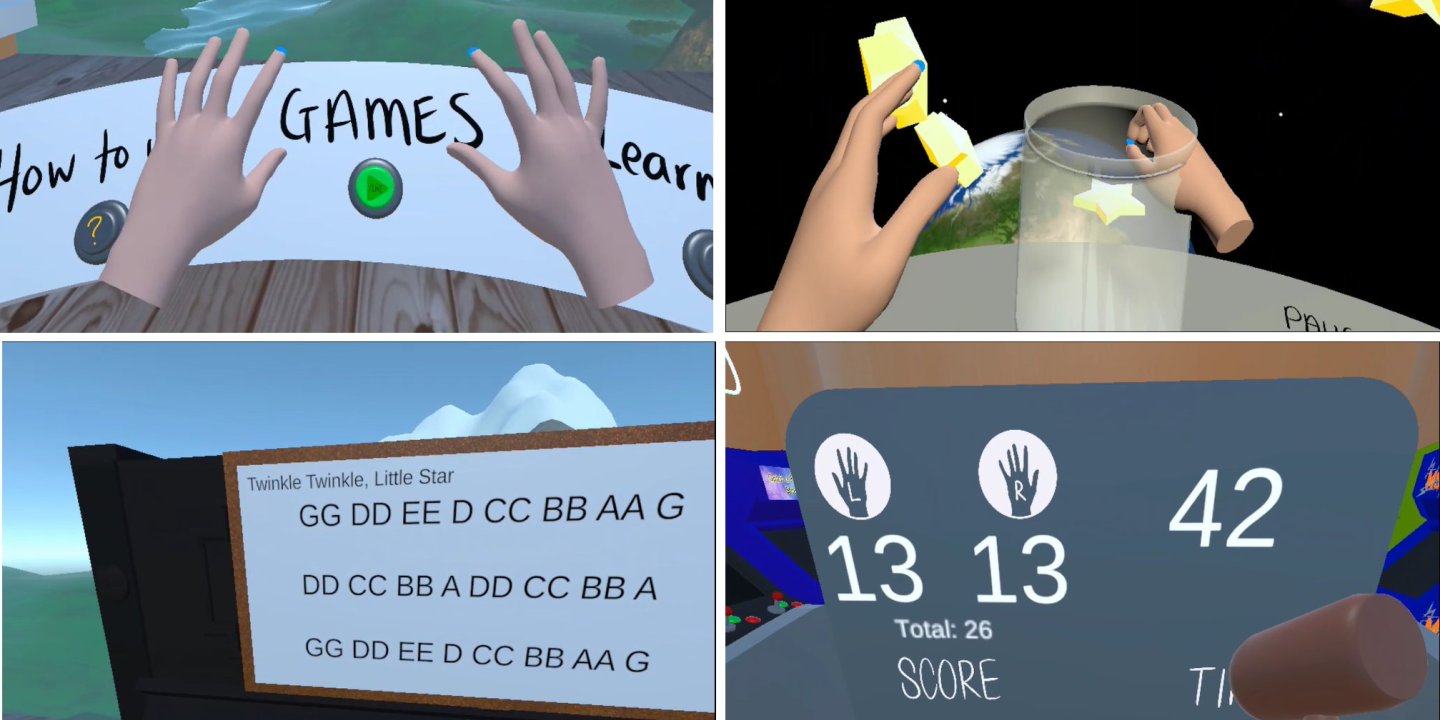
What’s next?
Amy’s already published a paper where she reviewed how well virtual reality exercises worked for people with MS in previous trials. She says “so far, people in our trial have really enjoyed the games. And some say they’ve noticed improvements with their upper limb movements. If the results of the trial are positive, we'll need to do a bigger study. This'll help us be sure if these games can help improve movements in arms or hands in people with MS.”
Read Amy's paper on the journal website
In the long run Amy hopes rehabilitation with virtual reality will be available to more people with MS. She hopes people with MS will be able to do these exercises from home in the future. This could make exercising much more fun and help people to stay motivated.
It’s not ‘boy science’
Amy learned how to develop these virtual realities during her PhD. She points out that “game development is for everyone. There are those weird biases that this is a ‘boy science’, but that’s completely incorrect. Don’t let anyone get you down!”
